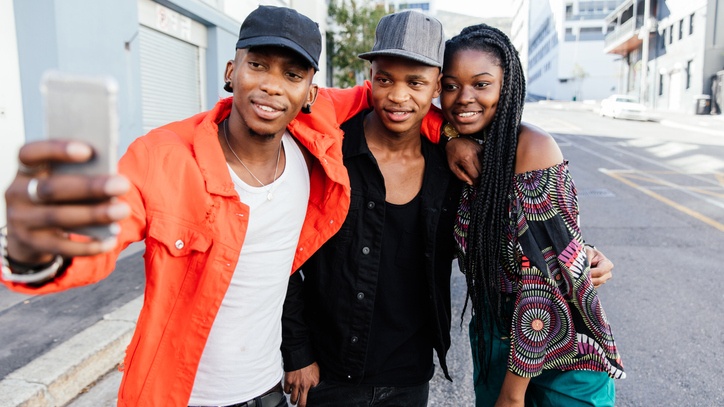For many of us, the plentiful time for introspection time brought about by the COVID-19 pandemic led to an awakening or two — mine was about who I could call a friend.
Over the course of several years, I found myself acting as guidance counselor, career coach, and at one point, a marketing director for her fledgling business for a heterosexual woman who I also thought I could call a friend. When I began to notice that much of our relationship was transactional, positioning her as the sole beneficiary of every ounce of fabulousness I could offer, I called her out. I expected a multitude of reactions but never did I expect my “sis” to call me a f****t.
The friendship between a straight woman and a gay man is an archetype almost as old as time. But what is not talked about enough is how some of these women confuse what to them — subconsciously or not — is an aesthetic for allyship.
Too often, it seems as if straight women believe an attachment to a gay man is trendy. Parasitical friends like this will use gay men to enhance their social media profile and/or expect them to turn into “Captain Save a Homie." But these same women will also stay silent when their boyfriends and cousins perpetuate the same homophobia we’ve been trying to escape and justify it with “that’s just how he is.”
Sis, that’s how you are, too. And these dangerous dynamics have been played out in the public eye.
When rapper Khia and entertainer TS Madison fell out, the former took aim at Madison’s gender identity in an effort to snag a few morsels of clout.
"Wanna be a star, and you’re not. Wanna be a woman, and you’re not," the "My Neck, My Back" rapper said of her former friend. "Wanna be right, and you’re wrong.”
And she isn't the only rapper to claim a member of the LGBTQ+ community as a friend just to eventually reveal her prejudicial colors. Yung Miami, one-half of the City Girls duo, came under fire in 2018 for old social media posts drenched in homophobia.
The rapper once said she'd physically harm her son should she see “any type of gay s**t” from him. The irony of Yung Miami's violent homophobia is that she happens to be friends with Saucy Santana, an openly gay man and her peer in the music industry.
The Miami native has since apologized but at what point do we address how her allyship immediately dissipated when the thought of her own son possibly being queer, crossed her mind? Is her form of solidarity only reserved for individuals whose lifestyle choices won’t directly affect her?
Us gay black men give people like the city girls attention and a platform to propel their careers and all they do is tell us they don’t want their son to be gay. Lol smh the irony.
— Marc (@MARCMARGIELA) November 13, 2018
Oftentimes, the idea of violence is restricted to the physical harm that can ensue but it’s much more than that. When folks decide to spew hateful rhetoric in an effort to dismantle and utterly destroy one’s gender identity or sexuality, the normalization of such prejudice can lead to fatal repercussions for queer people. The emotional and mental toll are also byproducts of homophobic and transphobic rhetoric that can lead to lasting damage, regardless of the myth that words do not hurt.
This Pride Month, whether you decide to post the quintessential rainbow photos or tweet out quotes from your favorite queer activists, if you make the decision to align yourself with individuals who perpetrate homophobic and transphobic rhetoric, you are not an ally. You are just as much of an oppressor as your boyfriend, bestie, or family member that you allow to execute this violence with little to no consequences.
Cuz they are laughing at him and not with him. That’s how it be with most gay men. They sit around with homophobic and transphobic ciswomen and be laughed at. Santana probably be talking about the trans girls around caresha and them and they be giggling
— Jupiter staraj (@JStaraj) April 29, 2021
When you decide to stand in community with us, you make the conscious decision to stand alongside us even when you don’t physically do so. To stand in community with us means that you are actively using your privilege to deconstruct homophobia and transphobia so when you make the choice not to, that is a decision to use it as an advantage at the expense of queer lives.
When you decide to genuinely become an ally, you make the decision to utilize your privilege in a way that uplifts our voices and sheds light on the plight of being queer and Black. This can include genuine dialogue on what support looks like for us, donating to LGBTQ+ organizations, or having those tough conversations with loved ones on why they urgently need to change their homophobic ways. Whether it’s racism or homophobia, we are fighting battles that require true allyship in its purest form. So when you claim solidarity, practice it behind closed doors, too.
